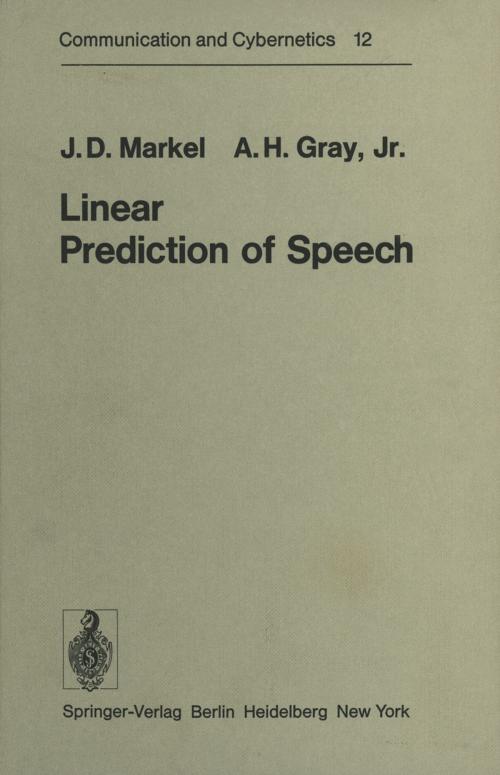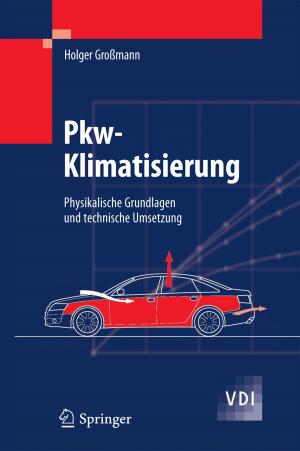Linear Prediction of Speech
Nonfiction, Science & Nature, Science, Other Sciences, Applied Sciences, Physics, General Physics| Author: | J.D. Markel, A.H. Jr. Gray | ISBN: | 9783642662867 |
| Publisher: | Springer Berlin Heidelberg | Publication: | March 12, 2013 |
| Imprint: | Springer | Language: | English |
| Author: | J.D. Markel, A.H. Jr. Gray |
| ISBN: | 9783642662867 |
| Publisher: | Springer Berlin Heidelberg |
| Publication: | March 12, 2013 |
| Imprint: | Springer |
| Language: | English |
During the past ten years a new area in speech processing, generally referred to as linear prediction, has evolved. As with all scientific research, results did not always get published in a logical order and terminology was not always con sistent. In mid-1974, we decided to begin an extra hours and weekends project of organizing the literature in linear prediction of speech and developing it into a unified presentation in terms of content and terminology. This effort was completed in November, 1975, with the contents presented herein. If there are two words which describe our goals in this book, they are unifica tion and depth. Considerable effort has been spent on showing the interrelation ships among various linear prediction formulations and solutions, and in develop ing extensions such as acoustic tube models and synthesis filter structures in a unified manner with consistent terminology. Topics are presented in such a manner that derivations and theoretical details are covered, along with Fortran sub routines and practical considerations. Using this approach we hope to have made the material useful for a wide range of backgrounds and interests.
During the past ten years a new area in speech processing, generally referred to as linear prediction, has evolved. As with all scientific research, results did not always get published in a logical order and terminology was not always con sistent. In mid-1974, we decided to begin an extra hours and weekends project of organizing the literature in linear prediction of speech and developing it into a unified presentation in terms of content and terminology. This effort was completed in November, 1975, with the contents presented herein. If there are two words which describe our goals in this book, they are unifica tion and depth. Considerable effort has been spent on showing the interrelation ships among various linear prediction formulations and solutions, and in develop ing extensions such as acoustic tube models and synthesis filter structures in a unified manner with consistent terminology. Topics are presented in such a manner that derivations and theoretical details are covered, along with Fortran sub routines and practical considerations. Using this approach we hope to have made the material useful for a wide range of backgrounds and interests.















